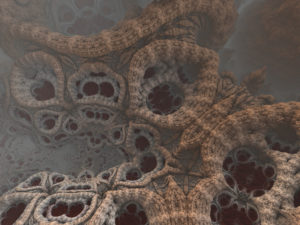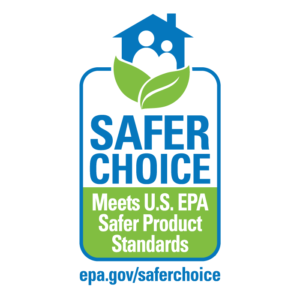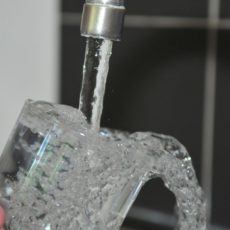
Every day, our world is getting bigger. Scientists make discoveries left and right that expand our horizons exponentially. Technological advances make it possible to dive deeper into the oceans, peer further into the cosmos and learn more about our place in the universe. One thing is for sure: we are not alone. According to a recent discovery by an American researcher, there are approximately 1 trillion microbes on Earth and 99.999% of them have yet to be identified.
There are microbes on the screen you are using to read this article, the doorknob on the front door to your home, and even in the air you breathe. However, this is not a cause for concern. In fact, take a deep breath and try to get as many of those bad boys in as possible. Your body needs microbes! There are ten times as many microbial cells in the human body than there are human cells, weighing in at right around three pounds-which is roughly the weight of the human brain. Microbes in the body help to digest food, create vitamins and even build up the immune system. As children, germs teach our bodies what is harmful and what isn’t; if this process is disrupted, it can lead to allergies, which is when the body mistakenly believes that a harmless substance- like pollen- poses a threat.

Still, not all germs are hunky dory. Some will lay you flat on your back if given the chance. Humans can get sick in several different ways, usually through viral and bacterial infections. Viruses are the most common cause of the common cold, but they don’t do well outside the body. Bacteria, on the other hand, loves to stake its claim on most any surface. For this reason, it is recommended that surfaces be cleaned and, in some cases, disinfected so as to avoid the spread of infectious diseases.
The response by the industrial sector to this need has been overly enthusiastic, to say the least. Doctors dole out anti-bacterial medication, which is effective, sure, but also has several unintended consequence. Among them, anti-bacterials strip the body of the good microbes along with the bad, and they also have created a catalyst for bacteria to evolve into what’s come to be known as superbugs, which are immune to most antibacterials. The world over, patients are clammoring for antibiotics, believing that it will make them healthier; what they don’t realize is that, in the long run, over prescribing that type of medication will have the opposite effect. Cleaning supplies designed to fight bacteria aren’t any better.
Nearly every antibacterial cleaning supply on the market contains chemicals that are murder for the environment and for the people using them. These chemical cocktails find their way down the drain and since water treatment plants aren’t designed to filter them out, the chemicals inevitably wind up in the water used to grow crops and even in the drinking supply. Of particular concern, hand soap that is marketed as anti-bacterial (usually claiming to eliminate 99.99% of bacteria) often contains triclosan, which may cause bacteria to become resistant to anti-bacterial medication and is thought to be an endocrine disruptor that can cause birth defects, developmental disorders and cancerous tumors.
The kicker is, according to the Center for Disease Control, most germs can be got rid of by vigorous handwashing using regular soap in warm water for 20 seconds. For whatever is left, they recommend using an alcohol-based hand sanitizer. Opinions vary on the artillery necessary to include in your cleaning cupboard for the war against germs. Some eco-warriors stand by baking powder and white vinegar as more than capable of handling every household cleaning task and beyond.

However, you’ll be excused if you’d like something that packs a little more punch for special occasions. Try looking for logos that certify that the product has gone through some sort of environmental screening. Additionally, there are a couple of things to avoid: aerosols, products with fragrances and dyes, and strong chemical odors. Aerosols, in particular, are an environmental pest. They emit something called “volatile organic compounds” which are a main ingredient in asthma-inducing smog. Finally, if you’d like to invest in the health of your household as well as that of the planet, consider buying a steam cleaner. Not only does it disinfect hard surfaces without the use of chemicals, but it’s also effective on soft surfaces like couches, cushions and rugs. Chemical cleaners just can’t compare!


